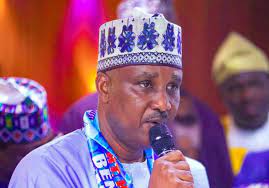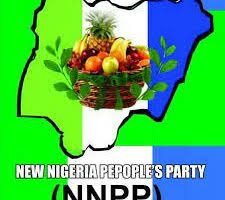The federal government has provided some insights into the killings and other security challenges currently facing the nation, citing issues of command and control as well as poor welfare of personnel and logistics, among others.
Minister of Interior, Lt.-General Abdulrahman Dambazau (retd), revealed this yesterday during an emergency one-day internal security summit in Abuja.
Besides, the minister said government was currently pursuing the implementation of a tripartite agreement for the voluntary return of Nigerian refugees in Cameroon.
The meeting was to examine, by way of conversation in practical terms, the reality of the current security situation within the country.
Speaking at the parley, Danbazau said, “there is also a general problem of command and control, indiscipline, poor attitude to duty, and poor welfare among the personnel of the security agencies in the field which ultimately impacts negatively on operational efficiency and corporate image of our services.” The minister further revealed that some of the threats confronting the nation were politically motivated, with some others induced from outside the country by those not comfortable with Nigeria’s potentials.
“There are many challenges contributing to insecurity and impeding optimum performance of security agencies.
I will mention a few of them.
Notably, there is poor logistics, including weapons and ammunition.
“So much has been happening in terms of criminal violence, specifically rural banditry, kidnapping, cattle rustling, communal violence, herdersfarmers’ conflict, etc, and of course, the number of victims has been increasing.
It is the responsibility of government to protect the lives and property of its citizens, and we are the very people entrusted with that responsibility by President Muhammadu Buhari.
“Of course, we all know that successes have been achieved regarding the degrading and dismantling the activities and structures of Boko Haram in the country, especially in the Northeast.
But we also know that part of the frustration is that the leadership of this terrorist group has been unleashing suicide missions, using particularly the girl-child against soft targets.
“We are also aware that postconflict peace-building is of greater challenge, especially as regards rehabilitation and resettlement of the displaced persons, who are mostly women and children.
“The success of our post-conflict peace-building efforts will largely depend on our ability to coordinate and execute reconstruction, rehabilitation, resettlement and reconciliation efforts, including deradicalization and counter-narrative programmes,” he explained.
On the way out of the security challenge, Dambazau said the takeoff point has to do with actionable intelligence.
According to him, “we are not dealing with conventional threats, but peculiar threats that are laced with terrorism, sabotage, and efforts to manipulate our society’s fault lines of religion and ethnicity.
“There are indications that some of these threats are politically motivated from within the country: some are induced from the outside of the country by those who are not comfortable with Nigeria’s potentials; while others are as a result of outright criminal acts or violent extremism or both.
“Whatever the source of these threats, security agencies must articulate their plans to contain, control and prevent them.
These threats not only undermine democracy, but also slow down our development and growth, thereby impacting on the peace, security and stability of our dear nation.” Dambazau further identified ethnic identity politics as a major contributing factor to conflicts in Nigeria, especially through manipulation of ethnic demographics to cause disunity and promote rebellion against the government.
He said: “Currently, there are very large swathes of ungoverned forests that are inter-connected, covering Zamfara, Sokoto, Kaduna, Katsina, Niger, Yobe Borno and Adamawa states, serving as sanctuaries for armed bandits and violent criminals.
“Over time, these bandits and other violent groups have perfected a pattern of launching indiscriminate attacks on hitherto peaceful communities killing, maiming, abducting, raping and traumatising scores of defenceless citizens under several guises.
The areas worst hit by these attacks include Birnin Gwari and the adjoining communities, southern parts of Kaduna, larger parts of Benue, Plateau, Taraba and Adamawa states.
In the last few years the entire Zamfara state has been reduced to a killing field to our collective shame.
“Other adjoining states such as Katsina, Kogi and Sokoto states have experienced similar carnage from armed bandits.
A few other sanctuaries exist, albeit to a lesser degree, across the geo-political zones from whence criminal organisation unleash violence on hapless citizens in isolated communities and unsuspecting commuters of our’ vast national road networks.
“Particularly, Abuja-Kaduna road and Jos-Riyom axis have acquired notoriety for wanton premeditated killings of innocent wayfarers.
This situation is exacerbated by the inability of vulnerable communities to promptly call for help in the event of attacks.” ‘Truth has been said’ He, however, assured that the outcome of the security deliberation will lead to the strengthening of the country’s security architecture, noting that the security challenges were relentlessly impacting on the country’s national security.
Also speaking, Minister of Defence, Brigadier-General Mazur Muhammada Dan’Ali (retd), advised security operatives not to take sides, urging them to do their job professionally.
The minister who was represented by Brigadier-General Umar Ibrahim, said, “this emergency meeting has been long overdue.
The truth has been said and it is left for all the security agencies to wear our thinking cap go back to the drawing board and do what we are expected to do.
“There is no anywhere in the world that this kind of senseless killings will be going on and security forces will go to sleep.
I want us to check this act of killings going on in most parts of the country.
Please, we should not take side; we must do our job accordingly.” Also in a message, the Chief of Defence Staff, General Gabriel Abayomi Olonisakin, prided the military as doing its best.
Represented by Air Vice Marshal Olusoji Awomodu, he said, “the Military is doing a lot and we are at the peak of the situation.
We will continue to do our best.
It has been very tough but I can assure you as military men, we are ready and always ready to put our lives on the line to ensure that everything is peaceful in this country.” Similarly, Secretary to the Kaduna state Government, Balarabe Lawal, also disclosed that the state’s biggest security threat has been the AbujaKaduna road.
“We have been receiving a lot of support from security agencies.
The conference is long overdue.
We have serious challenges like the issue of the Abuja-Kaduna road which has been giving us a sleepless night.
And I think the inspector general of police has been doing a lot among other areas,” he said.
On his part, Comptroller General of the Nigeria Immigration Service (NIS), Muhammed Babandede, advised government to have an agency responsible for only the collection of intelligence.
He said, “we are very significant to the security architecture of this country.
There is need to strengthen the separation between intelligence and operation in Nigeria.
Every agency is collecting intelligence and every agency is operating.
This is a challenge.
“In many countries, you will find out that there is somebody who is dedicated to collecting intelligence.
There is need for an agency dedicated to only the collection of information.
It will do this country good.”
Blueprint gives you the latest Nigerian news in one place. Read the news behind the news on burning National issues, Kannywood, Videos and the Military



